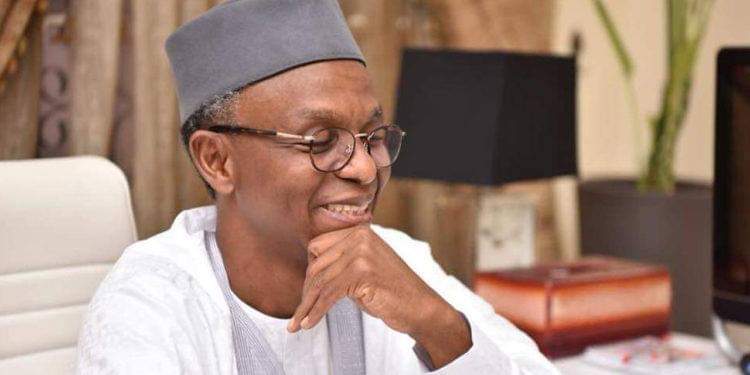
Southwest leaders in the All Progressives Congress (APC) are seeking action on the Nasir El-Rufai’s panel on restructuring.
The request was atop the wish-list taken by All Progressives Congress (APC) chieftains to President Muhammadu Buhari penultimate week.
Those who discussed the panel report with the President during their visit to the State House in Abuja are: Chief Bisi Akande, Aremo Olusegun Osoba, Dr. Yomi Finnih and Prince Tajudeen Olusi.
The eminent politicians urged the President to forward the report to the National Assembly for their consideration in the course of constitution review.
In their view, the report aptly captured the popular aspiration and yearning for the repositioning of the nation-state.
Akande, a former governor of Osun State, is the former interim chairman of the APC.
Osoba, a veteran journalist and two-time governor of Ogun State, is also a founding chieftain of the party.
Olusi, a former federal legislator, one-time Lagos commissioner and party elder is a former national vice chairman of the defunct Action Congress of Nigeria (ACN), one of the legacy parties that fused into the APC.
Finnih, a renowned medical practitioner and politician, is one of the leaders of the ruling party from Lagos.
The four leaders are held in high esteem in Southwest and beyond.
The report of the El-Rufai Committee, which was set up by the ruling party, had been submitted to the APC National Caucus and the party’s National Executive Committee (NEC).
Many stakeholders, particularly rights’ activists, the progressive bloc and pro-national conference crusaders had applauded the report, noting that it could stem the tide of lopsided federalism.
The Southwest APC elders reasoned that the implementation of the report will douse the tension that has enveloped the country and chart the path to restructuring.
A source told The Nation: “The party chieftains advised the President to forward the report of the El-Rufai Committee on Restructuring to the National Assembly as federal legislators are set for another constitution amendment.
“They reminded the president that the report had been considered and approved by the APC Caucus and NEC and that there should be no further delay on its implementation.
“The party elders believed that its implementation will address many problems, particularly community policing, devolution of power and fiscal federalism. They believe that if some of these items form the kernel of constitution review, there will be peace in Nigeria.
“Indeed, many Nigerians are of the view that the ruling party rolled out campaign promises that revolved around restructuring and decentralisation of power to foster true federalism.”
The 12 recommendations contained in the report are germane to the resolution of the fundamental national question, which has remained a bone of contention among the diverse ethnic groups constituting the country.
The panel recommended the review of derivation principle to enable the areas producing the resources to have a benefit of more resources for development.
Also, the committee proposed devolution of power in a way that will give effect to the transfer of some items from the Exclusive List to the Concurrent List.
These items include: foods and drugs regulation, finger print identification of criminals, registration of business names, labour matters, mines and minerals, police, prisons, public holiday and stamp duties.
If the recommendation on citizenship is backed by law, then, Nigerians resident in any part of the country for a specific period of time will be treated as indigenes.
Other recommendations are: merger of states based on desire; request and preference; fiscal federalism; independent candidacy; local government autonomy; revenue allocation; public holidays; state police and referendum, except on the state creation.
The source further said: “If the report is presented to the National Assembly, either as a core proposal or bill, it will give opportunities to stakeholders to intensify legislative lobbying during the constitutional amendment.
“The report has to do with the future survival of the country and represents the clamour for the redress of the defective federal principle, the unitary structure that is masquerading as federalism.”
By Emmanuel Oladesu












